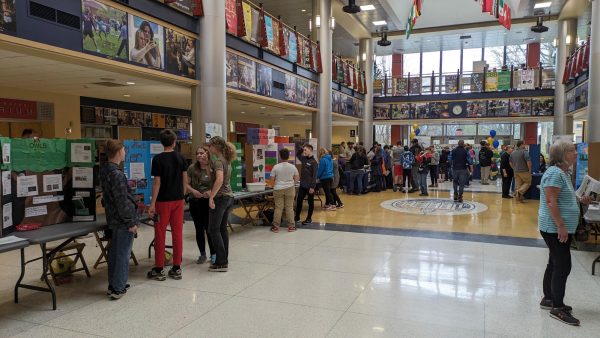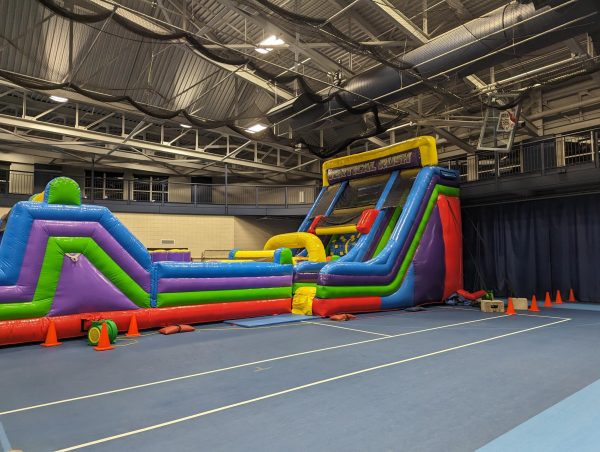Ukrainian Penn State Professor hosts seminar on ongoing war
Lena Surzhko-Harned, associate teaching professor and political science associate director at Penn State Behrend, visited Allegheny College on Tuesday, April 18, to talk about the ongoing war in Ukraine.
Despite the propaganda and war fatigue, Surzhko-Harned “keeps going on the information front” and gives seminars on the war in Ukraine to ensure that political and humanistic perspectives are represented in conversations about the war.
Surzhko-Harned spends a lot of time investigating “under what circumstances and how Ukraine became so much different from Russia.”
Surzhko-Harned believes that Ukraine’s choice of democracy was a civilizational one that has remained steady throughout its history. In contrast, Russia’s choice of schema has led it a different path. Her research aims to highlight the seismic shifts that occurred in Ukrainian society between 2004 and 2014, and how these shifts have made Ukraine distinct from Russia.
The organizer of the event, Daria Kutova, ’25, met Surzhko-Harned at a seminar in Erie that Ukrainian students from Allegheny attended this past February.
“We didn’t know she was from Ukraine also, but then she greeted us in Ukrainian,” Kutova said.
Kutova remembered the distinctive persuasiveness and motivation Surzhko-Harned spoke with at the seminar.
Surzko Harned said that keeping her own emotions at bay can be a challenge, but she often uses her own perspective to her advantage. With friends and family in Ukraine, she understands the conflict on a personal level, and recognizes the power of tapping into her own emotional state to connect with her audience on a more personal level.
“Sometimes, I can better communicate certain messages by sharing my own experiences and emotions,” Surzhko-Harned said. “This allows the audience to trust me as someone who brings an inside point of view, rather than just an outside observer looking in.”
Professor of History and Global Health Studies Kenneth Pinnow first met Surzhko-Harned in the summer of 2013 during a summer program that took students to Ukraine.
“That’s where I had met her first and then I think she was going to take the second group and then the war broke out, and it never went,” Pinnow said.
During the public talk, Pinnow was impressed with her analytical mind and her ability to look at complex political situations critically.
“I’ll use the example of the student who asked about Putin, and she was very analytical about it, suggesting that it’s more complicated than just removing him,” Pinnow said. “To me was an example of how she’s looking at it as a political scientist, so there’s always something new and it’s always interesting to hear what people have to say.”
He believes that attending this and similar events contribute to the learning environment of Allegheny.
“I think that’s part of how we live here (at Allegheny) is that we’re supportive of colleagues and friends and students,” Pinnow said.
Pinnow noted that the seminar was not only a chance for students to learn, but also for him to gain new perspectives and ideas. In a similar manner, he sees himself as an influence on students.
“If we’re (professors are) there, we can we can ask for our students maybe to go there,” Pinnow said.
Kutova agreed that Surzhko-Harned sparked particular interest among Allegheny faculty and staff to further discuss the current situation in Ukraine.
“I’m happy to see professors showed up,” she said. “But it would be great if more students would come too.”
As a student currently transferring to Allegheny, Kutova believes that the college has created a strong environment for educating students.
“For students, as American citizens, it’s important to know what is the U.S. position in the international dialogue about the war in Ukraine and how the country supports Ukraine now,” Kutova said. “It’s already a part of American history.”
Kutova hopes that more students will attend future events.
“We will definitely do some more events next semester, since from the last event on 24 of February dedicated to the anniversary of the war, things haven’t changed significantly,” Kutova said. “The war is still going on.”






